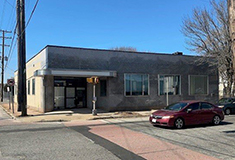News:
Rhode Island
Posted: August 8, 2013
Lawmakers pass six major bills affecting the industry
Expiration dates for approved permits have been extended until July 1, 2015, thanks to the "tolling" or permit-extension legislation proposed by the Rhode Island Builders Association, passed by the General Assembly and signed into law by Gov. Lincoln Chafee in early July.
"This legislation eases what could have been a crippling financial burden in a slow market: Having to re-engineer and re-apply for permits and approvals if a development could not have been completed by the original expiration date," said RIBA executive director John Marcantonio.
The bill will extend permits for another two years based on a formula available at the Dept. of Environmental Management (DEM) website: www.dem.ri.gov/programs/benviron/water/permits/tolling.htm.
The main sponsors of this bill were Sen. Michael McCaffrey (D-Warwick) and Rep. Nicholas Mattiello (D-Cranston).
Marcantonio stressed that members should not expect permits to be extended again when this act expires.
Also passed and signed into law in July was legislation establishing a task force to study the creation of a single, statewide system of regulations for onsite wastewater treatment systems (OWTS) and wetlands. The task force, which will include representatives of the business, environmental and development communities, as well as municipalities, is to present its recommendations during or before January 2015.
When the new, statewide system is adopted, it will replace local OWTS and wetlands regulations.
Thomas D'Angelo of Terry Lane Corp./Progressive Realty Group, co-chairman of RIBA's environmental committee, will represent RIBA on the task force.
The bill was proposed by civil engineer Gary Ezovski, who co-chairs the Regulations Subcommittee of the Annual Rhode Island SBA Economic Summit and represents no trade or interest group. It was supported by a coalition of Rhode Island business interests, including RIBA.
The main sponsors were Sen. Erin Lynch (D-Warwick, Cranston) and Rep. Patricia Serpa (D-West Warwick, Coventry, Warwick).
"Along with the general business community in Rhode Island, RIBA believes that the current tangled web of local environmental regulations is unnecessary and harms the economy. RIBA supported this bill because it will lead to a single approval authority, DEM, and eliminate the local regulatory and permitting processes. This legislation might lead to stricter statewide standards, but it will create a clear, predictable and reliable regulatory process. This will streamline permitting and be a benefit to the industry, helping Rhode Island build again," said Marcantonio.
"We also believe that this legislation will improve environmental protection because that will no longer be carried out according to town borders."
Four additional bills, all proposed and supported by RIBA, passed the General Assembly and awaited action by the governor as of this writing. These included:
The "Notice Bill," which will require cities and towns to establish and maintain a public notice e-mail registry in order to notify those on the registry about any changes to local subdivision regulations or zoning ordinances. Participants' names and e-mail addresses would be placed on the registry by request.
"This is a major property rights issue, since many landowners are not being adequately informed about local deliberations and decisions that affect their rights. It will also be important for all RIBA members to sign up for their local registries in order to stay informed about these local actions," said Macantonio.
The "Spec Housing Bill" will eliminate any local inventory tax on new residential construction by preventing cities and towns from collecting taxes "at full and fair cash value" until that property is either occupied or sold, for up to two years. If the bill becomes law, it will take effect on Jan. 1, 2014.
"This bill encourages speculative development with the intent of creating an inventory of housing in the state, which is so desperately needed," said Marcantonio.
The "Slope Bill" will prevent the slope of land from being deducted from a land calculation. It will put slope back into place in calculating local zoning density.
The "Home Inspector Licensing Bill" sets out the requirements for licensure and mandates that all home inspectors be so licensed
Also passed by the general assembly was Gov. Chafee's budget, which includes a restoration of the state's Historic Tax Credit (HTC), supported by RIBA, but with an unprecedented provision, opposed by RIBA, that requires developers to use only contractors and subcontractors who participate in registered apprenticeship programs if they have five or more employees.
RIBA's legislative committee believes that this provision would shut out non-union contractors. The provision would apply to projects of $10 million or more.
Two key bills that RIBA actively opposed did not make it to a floor vote.
These included the "Apprenticeship Bill," which would have created unreasonable apprenticeship rules for state, municipal and quasi-government contracts over $1 million. The bill would potentially have kept 80-plus percent of the industry from bidding on government projects, according to Marcantonio.
"The second of these bills was the 'Independent Contractor Bill,' which would have changed the definition of an independent contractor, wreaking havoc on the industry," he added.
Altogether, RIBA's legislative committee monitored an additional 50 bills related to other issues of concern to the industry.
To learn more about these issues and to find out how you can help as the 2014 session of the General Assembly approaches, contact Marcantonio at jmarcantonio@ribuilders.org.
Paul Eno is the owner and editor-in-chief of New River Press, Woonsocket and is the editor of the monthly RIBA newsletter, The Rhode Island Builder Report.Paul Eno, New River Press
Tags:
Rhode Island
MORE FROM Rhode Island
Washington Trust named one of healthiest employers in Rhode Island by PBN
Westerly, RI For the fourth year in a row, Washington Trust has been named by Providence Business News (PBN) as one of the healthiest employers in Rhode Island. Washington Trust was one of 27 organizations selected for PBN’s 2025 Healthiest Employers Awards,

Quick Hits
Columns and Thought Leadership

Diverse mix of businesses makes Warwick the perfect community - by Frank Picozzi
For those looking for some recreation in the great outdoors, wooded trails and biking paths with spectacular water views, lush green grass perfect for a picnic, fun playgrounds with all the amenities, and modern sports fields can be found easily throughout Warwick. But what does one do when the

Nine Post Rd. receives approval for six units and commercial space - by Frank Picozzi
After several years of planning, the owners of a property in historic Pawtuxet Village recently received planning board master plan approval for a mixed-use building consisting of six residential units and 1,510 s/f of commercial space along the banks of the majestic Pawtuxet River.

The City of Warwick is the perfect choice - by Frank Picozzi
The late summer sky was bright and the mood festive at the family-friendly “Best in Town” event at Rhode Island’s first Floor & Décor store. Those looking to make some home improvements strolled through the warehouse, admiring the well-stocked aisles, fair

Warwick offers convenience of city living, but feels like a smaller, close-knit community - by Frank Picozzi
Located in the heart of southern New England, Warwick is a perfect community in which to locate your business, or find a spot to develop commercial and residential projects. Warwick brings the convergence of air, rail, highway, and maritime travel in one convenient, central location. We’re home to Rhode Island T.F. Green







.png)


.png)